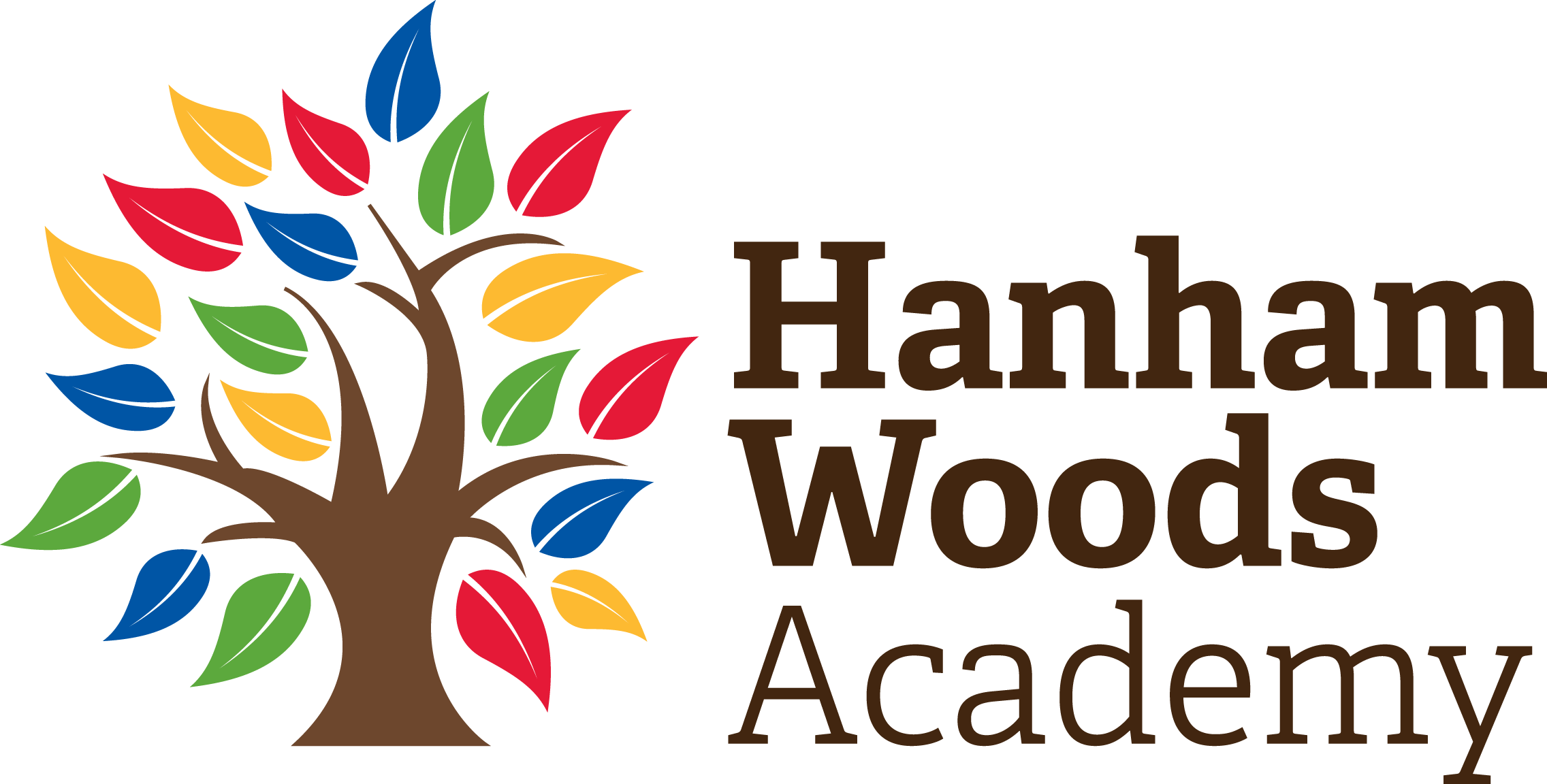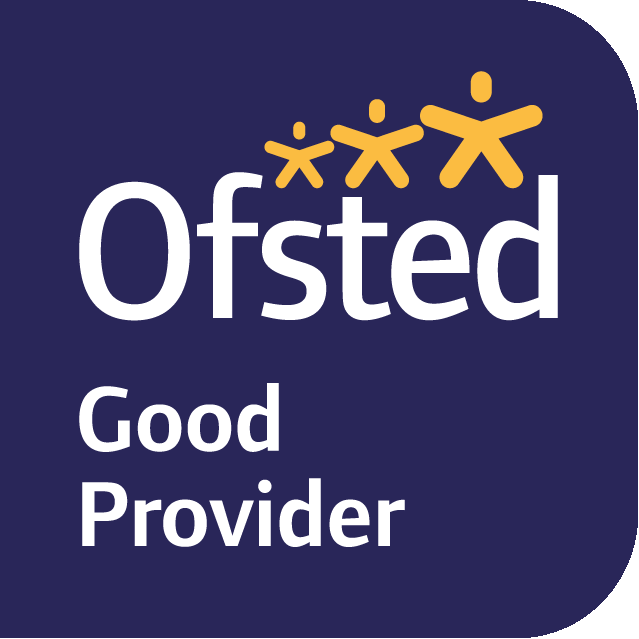English
Key Contacts
Mrs Abi Morgan-Patel – abi.morgan-patel@clf.uk Curriculum Leader for English
Mr Peter Jones (2nd)
Mrs Vicky Heynes
Mr James Ryan
Mrs Deborah Owens
Mrs Clare Weatherall
English Curriculum Intent Statement
Our uniting ‘sentence’ is ‘the English Department inspired the students of HWA to be skilful, creative writers; confident, articulate orators; enthusiastic, critical readers and to have a deep appreciation of the power and beauty of language.’
- By the end of their time at Hanham Woods Academy, a student of English will:
- Read challenging texts and be exposed to the beauty and truth found in great literature. They will encounter and appreciate a wide variety of high-quality fiction and literary non-fiction including plays, poetry, plays, novels and short stories; non-fictional forms will include letters, speeches, diaries, essays and articles.
- Have enriched their knowledge of people, place, societies and history. They will encounter a wide variety of perspectives, voices, cultures and historical contexts that allow them to transcend their immediate context and enter a reading world beyond their own experience. Literature deals with the human condition: love and loyalty, betrayal and loss. They will experience and value how literature allows us to feel connected in the world by knowing that others share our experiences too.
- Develop as analytical thinkers by developing a critical view of the world around them. They will understand how others, and themselves, are influenced by life experiences enabling them to have a perceptive understanding of how this may affect interpretations of texts. Students will develop the ability to clearly explain, justify and support their ideas in a sensitive and reasoned way.
- Write in an academic style with confidence and be able to discuss a variety of interpretations texts using a synthesised approach that considers contextual factors of both production and reception; and write extended academic responses that are perceptive, accurate and assured.
- Speak with conviction so they can form clear opinions on controversial and key topics that are prevalent in the news and in society.
- Communicate with precision, creativity and clarity by developing an understanding of grammar and language that enables them to craft their writing for a variety of forms. Students will be able to make judicious choices regarding voice, language, structure and grammar to address readers in a variety of contexts.
- Understand intertextuality and allusions and have the opportunity to explore the origins of the domain and therefore be fully immersed in the history of the subject and the works many writers have been inspired by. We want students to be familiar with common allusions often made in the works of literature.
- Understand the many media messages they receive through newspapers, television, advertising and social media so that they are able to have a democratic engagement within wider society.
- In order to achieve a true understanding of English, topics have been intelligently sequenced based on the following rationale:
- High quality texts have been selected which build on the strong foundations of the previous year or key stage so that students are ready for texts with greater complexity for example, the study of Animal Farm in in Key Stage 3 introduces the idea of tyranny which is then further explored in Shakespeare’s Macbeth in Key Stage 4, and also in the study of poems such as Ozymandias and My Last Duchess.
- Key literary knowledge of concepts such as narrative structure, motifs, sonnets and hyperbole are explicitly taught in depth and illustrated through examples in literature where writers exploit them. For example, the use of soliloquy and monologue in The Tempest and allegory and rhetoric in Animal Farm. This provides rich mental models of these concepts that enable students to confidently remember, analyse and utilise literary techniques in their own writing.
- Key knowledge that students need to remember is defined in each unit of work in knowledge organisers and interleaved throughout the curriculum so that students build on knowledge each y For example relevant knowledge about Victorian London, morality and metaphor that students learn in Year 7 can be built on rather than re-taught because we plan our curriculum so that students remember and know more.
- Grammar, vocabulary, literary concepts and historical and social contexts are organised in a systematic way so that students can deepen and build upon their understanding as they progress through the curriculum.
- An intensive focus on developing a high level of written accuracy and the learning of academic vocabulary in every unit, enable students to develop their own language and expression, in both written and verbal communication, allowing them to access resources and lessons across the curriculum as well as clearly respond to tasks when expressing their ideas.
- Students also study how to plan and write narratives over KS3 and KS4, building on the basic ideas of setting, character, plot and conflict, and developing more complex ideas such as cyclical structure and motif.
- Key oracy strategies are also explored and built upon each year, such as the Aristotelian Triad, so that students become confident at analysing and creating powerful speeches.
- The English curriculum will privilege the disadvantage by addressing gaps in students’ knowledge and skills:
- All students access the whole curriculum because we believe that through planning and use of direct instruction we can support novice learners to grapple with demanding concepts.
- In order to reduce the ‘word gap’ we aim to prioritise progression in knowledge of language and of its forms, usage, grammar and vocabulary.
- Our ambition is that all students read beyond their chronological age. Early intervention is crucial and so we test the reading ages of all students through NFER tests and the Accelerated Reader programme in Y7 and Y8. We diagnose through an in-depth screening process, including NGRT testing, any barriers to reading (decoding, comprehension, fluency) and plan rapid, targeted and bespoke intervention so that students catch up.
- We use Lemov’s various ‘Control the Game’ reading strategies to engage all students and to improve focus and attainment in reading.
- We use whole class feedback and self-assessment to provide formative assessment and close the gap more quickly. The focus is on celebrating the positive aspects of students’ work, providing clear models, and is specific, challenging and related to the goal of the task.
- By providing opportunities for all students to appreciate a very broad variety of text, we intend to increase the cultural capital of all students.
- We also organise trips to venues such as the Globe Theatre and the Bath Forum, as well as inviting poets, writers and acting companies to perform to students at our school.
- By defining an explicit vocabulary curriculum that teaches academic vocabulary in a systematic way through stories, etymology and morphology we close the language gap and ensure students have the language to be able to express their ideas.
- We fully believe English can contribute to the personal development of students at HWA:
- By selecting a wide variety of texts which provide contrasting viewpoints regarding a range of moral issues, the English curriculum provides a wealth of opportunities for students’ moral development through understanding perspectives that differ from those shared by their own communities; thus, promoting cohesion and empathy. For example, An Inspector Calls explores the tension between socialism and capitalism in Edwardian Britain which allows students to examine their own ideas about how society should work.
- The curriculum promotes underrepresented groups including women, minority ethnic groups and the working class. We do this through the teacher of literature in a sensitive way to champion the plight these groups have faced historically, for example in the works of Mya Angelou or ‘Trash’ by Andy Mulligan. Furthermore, we challenge this struggle in contemporary society.
- Through selecting a variety of non-fiction texts in all year groups, ranging from topics such as social media use, gender and ethnicity inequality, and healthy eating to sustainability and environmental issues, many opportunities for personal development are provided.
- We use poetry and non-fiction texts to tap into the cultural heritage and backgrounds of our students to ensure that their voices are represented in the curriculum and feel seen.
- We make links with our specific context through exploration of colonialism, for example in the poetry of John Agard, and its relevance in understanding contemporary society in Bristol and how history informs our future.
- Opportunities are built in to make links to the world of work to enhance careers, advice and guidance that students are exposed to:
- All students develop their oracy and presentation skills at KS3 through a range of talks and discussions. For many students, this helps to develop their self-confidence, as well as preparing them for similar experiences in the world of further education, apprenticeships, and employment.
- Be ready for further study and confidently be able to understand more complex texts and flourish in post-16 and university level study.
- Each topic in every unit has a ‘careers spotlight’, where students will explore a profession linked to that particular unit of work.
- As part of Year 10 Work Experience week, students create CVs and covering letters for real-life jobs which are responded to by industry experts in the local area. Students then have an opportunity to visit and experience different work places and finish the week with a mock interview. They learn to present themselves professionally in all their communication.
- Through taking part in several national writing competitions, students will be given the opportunity to become published authors gaining insight into this career path and the process and competition involved in becoming a published writer. Year 9 students also produce an anthology of Poetry called ‘My Identity’ that all students contribute to and that is shared with the school community.
- Qualifications – key expectation for employers
- Oracy/reading/writing skills for employment
- A true love of English involves learning about various cultural domains. We teach beyond the specification requirements, but do ensure students are well prepared to be successful in GCSE examinations:
- Students are given the opportunity to appreciate narratives from a variety of time periods and cultures ranging from Ancient Greece to modern world literature. Students gain understanding of other cultural concepts such as early twentieth century political literature with Animal Farm, as well parallel and paired stories to ensure our curriculum has diverse voices, which counterbalance any single voices in our cannon. For example, the poetry of Langston Hughes, counteracts negative portrayals and racial stereotypes, and makes space for multicultural perspectives.
- Students are given the opportunity to participate in a variety of plays from Shakespeare’s works to contemporary plays.
- We introduce literacy criticism to students to stretch and challenge their thinking.


